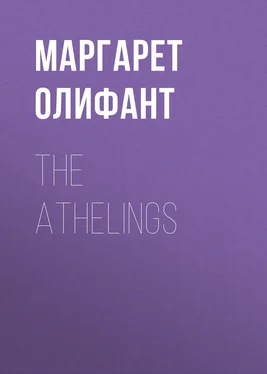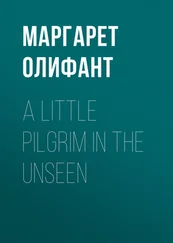Маргарет Олифант - The Athelings
Здесь есть возможность читать онлайн «Маргарет Олифант - The Athelings» — ознакомительный отрывок электронной книги совершенно бесплатно, а после прочтения отрывка купить полную версию. В некоторых случаях можно слушать аудио, скачать через торрент в формате fb2 и присутствует краткое содержание. Жанр: foreign_prose, literature_19, foreign_antique, на английском языке. Описание произведения, (предисловие) а так же отзывы посетителей доступны на портале библиотеки ЛибКат.
- Название:The Athelings
- Автор:
- Жанр:
- Год:неизвестен
- ISBN:нет данных
- Рейтинг книги:5 / 5. Голосов: 1
-
Избранное:Добавить в избранное
- Отзывы:
-
Ваша оценка:
- 100
- 1
- 2
- 3
- 4
- 5
The Athelings: краткое содержание, описание и аннотация
Предлагаем к чтению аннотацию, описание, краткое содержание или предисловие (зависит от того, что написал сам автор книги «The Athelings»). Если вы не нашли необходимую информацию о книге — напишите в комментариях, мы постараемся отыскать её.
The Athelings — читать онлайн ознакомительный отрывок
Ниже представлен текст книги, разбитый по страницам. Система сохранения места последней прочитанной страницы, позволяет с удобством читать онлайн бесплатно книгу «The Athelings», без необходимости каждый раз заново искать на чём Вы остановились. Поставьте закладку, и сможете в любой момент перейти на страницу, на которой закончили чтение.
Интервал:
Закладка:
“But things that have to be done always come in people’s way,” said Agnes; “is not that true? I am sure, when you read people’s lives, the thing they have to do seems to pursue them; and even if they do not want it, they cannot help themselves. Papa, is not that true?”
“Ay, ay—hush, children,” said Mr Atheling, vaguely; “I am busy—speak to your mother.”
They spoke to their mother, but not of this subject. They spoke of Miss Willsie’s new maid, and conspired together to hinder her going away; and then they marvelled somewhat over the book which Charlie was to bring home. Mr Foggo and his maiden sister lived in Bellevue, in one of the villas semi-detached, which Miss Willsie had named Killiecrankie Lodge, yet Charlie was some time absent. “He is talking to Mr Foggo, instead of bringing our book,” said Marian, pouting with her pretty lips. Papa and Mamma had each of them settled into a brown study—a very brown study, to judge from appearances. The fire was low—the lights looked dim. Neither of the girls were doing anything, save waiting on Charlie. They were half disposed to be peevish. “It is not too late; come and practise for half an hour, Agnes,” said Marian, suddenly. Mrs Atheling was too much occupied to suggest, as she usually did, that the music would wake Bell and Beau: they stole away from the family apartment unchidden and undetained, and, lighting another candle, entered the genteel and solemn darkness of the best room. You have not been in the best room; let us enter with due dignity this reserved and sacred apartment, which very few people ever enter, and listen to the music which nobody ever hears.
CHAPTER XI.
THE BEST ROOM
The music, we are grieved to say, was not at all worth listening to—it would not have disturbed Bell and Beau had the two little beds been on the top of the piano. Though Marian with a careless hand ran over three or four notes, the momentary sound did not disturb the brown study of Mrs Atheling, and scarcely roused Susan, nodding and dozing, as she mended stockings by the kitchen fire. We are afraid this same practising was often an excuse for half an hour’s idleness and dreaming. Sweet idleness! happy visions! for it certainly was so to-night.
The best room was of the same size exactly as the family sitting-room, but looked larger by means of looking prim, chill, and uninhabited—and it was by no means crowded with furniture. The piano in one corner and a large old-fashioned table in another, with a big leaf of black and bright mahogany folded down, were the only considerable articles in the room, and the wall looked very blank with its array of chairs. The sofa inclined towards the unlighted fire, and the round table stood before it; but you could not delude yourself into the idea that this at any time could be the family hearth. Mrs Atheling “kept no company;” so, like other good people in the same condition, she religiously preserved and kept in order the company-room; and it was a comfort to her heart to recollect that in this roomy house there was always an orderly place where strangers could be shown into, although the said strangers never came.
The one candle had been placed drearily among the little coloured glass vases on the mantel-shelf; but the moonlight shone broad and full into the window, and, pouring its rays over the whole visible scene without, made something grand and solemn even of this genteel and silent Bellevue. The tranquil whiteness on these humble roofs—the distinctness with which one branch here and there, detached and taken possession of by the light, marked out its half-developed buds against the sky—the strange magic which made that faint ascending streak of smoke the ethereal plaything of these moonbeams—and the intense blackness of the shadow, deep as though it fell from one of the pyramids, of these homely garden-walls—made a wonderful and striking picture of a scene which had not one remarkable feature of its own; and the solitary figure crossing the road, all enshrined and hallowed in this silvery glory, but itself so dark and undistinguishable, was like a figure in a vision—an emblematic and symbolical appearance, entering like a picture to the spectator’s memory. The two girls stood looking out, with their arms entwined, and their fair heads close together, as is the wont of such companions, watching the wayfarer, whose weary footstep was inaudible in the great hush and whisper of the night.
“I always fancy one might see ghosts in moonlight,” said Marian, under her breath. Certainly that solitary passenger, with all the silvered folds of his dress, and the gliding and noiseless motion of his progress, was not entirely unlike one.
“He looks like a man in a parable,” said Agnes, in the same tone. “One could think he was gliding away mysteriously to do something wrong. See, now, he has gone into the shadow. I cannot see him at all—he has quite disappeared—it is so black. Ah! I shall think he is always standing there, looking over at us, and plotting something. I wish Charlie would come home—how long he is!”
“Who would plot anything against us?” said innocent Marian, with her fearless smile. “People do not have enemies now as they used to have—at least not common people. I wish he would come out again, though, out of that darkness. I wonder what sort of man he could be.”
But Agnes was no longer following the man; her eye was wandering vaguely over the pale illumination of the sky. “I wonder what will happen to us all?” said Agnes, with a sigh—sweet sigh of girlish thought that knew no care! “I think we are all beginning now, Marian, every one of us. I wonder what will happen—Charlie and all?”
“Oh, I can tell you,” said Marian; “and you first of all, because you are the eldest. We shall all be famous, Agnes, every one of us; all because of you.”
“Oh, hush!” cried Agnes, a smile and a flush and a sudden brightness running over all her face; “but suppose it should be so, you know, Marian—only suppose it for our own pleasure—what a delight it would be! It might help Charlie on better than anything; and then what we could do for Bell and Beau! Of course it is nonsense,” said Agnes, with a low laugh and a sigh of excitement, “but how pleasant it would be!”
“It is not nonsense at all; I think it is quite certain,” said Marian; “but then people would seek you out, and you would have to go and visit them—great people—clever people. Would it not be odd to hear real ladies and gentlemen talking in company as they talk in books?”
“I wonder if they do,” said Agnes, doubtfully. “And then to meet people whom we have heard of all our lives—perhaps Bulwer even!—perhaps Tennyson! Oh, Marian!”
“And to know they were very glad to meet you ,” exclaimed the sister dreamer, with another low laugh of absolute pleasure: that was very near the climax of all imaginable honours—and for very awe and delight the young visionaries held their breath.
“And I think now,” said Marian, after a little interval, “that perhaps it is better Charlie should be a lawyer, for he would have so little at first in papa’s office, and he never could get on, more than papa; and you would not like to leave all the rest of us behind you, Agnes? I know you would not. But I hope Charlie will never grow like Mr Foggo, so old and solitary; to be poor would be better than that.”
“Then I could be Miss Willsie,” said Agnes, “and we should live in a little square house, with two bits of lawn and two fir-trees; but I think we would not call it Killiecrankie Lodge.”
Over this felicitous prospect there was a great deal of very quiet laughing—laughing as sweet and as irrepressible as any other natural music, but certainly not evidencing any very serious purpose on the part of either of the young sisters to follow the example of Miss Willsie. They had so little thought, in their fair unconscious youth, of all the long array of years and changes which lay between their sweet estate and that of the restless kind old lady, the mistress of Mr Foggo’s little square house.
Читать дальшеИнтервал:
Закладка:
Похожие книги на «The Athelings»
Представляем Вашему вниманию похожие книги на «The Athelings» списком для выбора. Мы отобрали схожую по названию и смыслу литературу в надежде предоставить читателям больше вариантов отыскать новые, интересные, ещё непрочитанные произведения.
Обсуждение, отзывы о книге «The Athelings» и просто собственные мнения читателей. Оставьте ваши комментарии, напишите, что Вы думаете о произведении, его смысле или главных героях. Укажите что конкретно понравилось, а что нет, и почему Вы так считаете.












